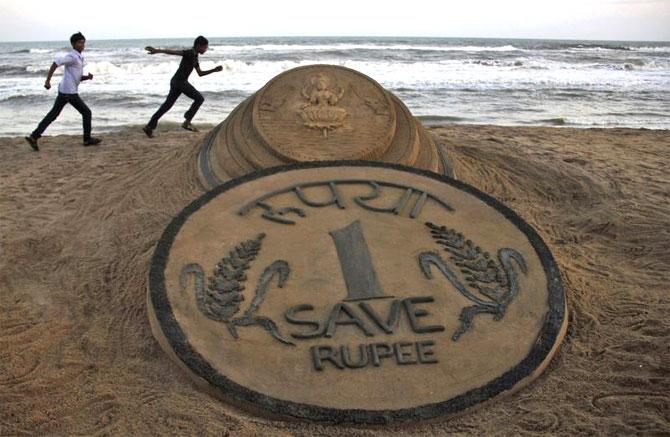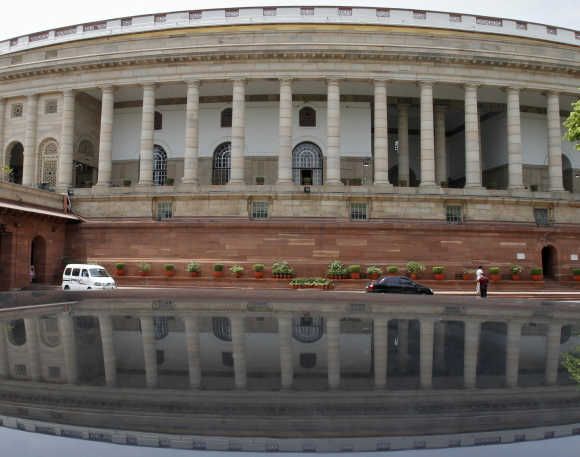The abolition of the Planning Commission raises an important fiscal question: Will we continue to plan in the old-fashioned way with a range of output targets, and an expenditure programme to achieve these targets specified over the next five years?

The Planning commission is no more but the Plan Budget continues as a fiscal entity.
This newspaper reported that Plan Budget proposals are to be prepared and forwarded by line ministries directly to the ministry of finance.
As post-commission arrangements are yet to evolve, this is a necessary stopgap measure. But it marks the need to reflect on needed institutional reforms in the fiscal business process.
The erstwhile Planning Commission had two important fiscal responsibilities. First, to allocate money to the states in order for them to finance their Plan expenditures.
Second, to provide a five-year fiscal-resource framework for the central Plan. Much has been made of the first, which has meant centralisation and the use of imperial discretion by the Centre.
Over the last decade, however, with the financial position of the states improving sharply, the imperial dimension has become more an irritant than a regrettable necessity for most states.

It is still pertinent in the case of the so-called special category states, but that reflects the absence of a coherent policy to secure the fiscal sustainability of these states without recourse to discretion.
With such a policy in place, the problem will abate. If not, then there are a number of entities that can be entrusted with this discretionary power.
The second responsibility was based on the implicit assumption that the central Plan would be the principal vehicle driving public investment.
This has long been invalid. The share of capital expenditure in total Plan expenditure has fallen from 68 per cent in 1983-84 to 21 per cent in the current fiscal year.
The Centre is no longer a major provider of budgetary resources for public investment.
Plan expenditure, therefore, does something else - no one seems sure quite what.

The abolition of the Planning Commission raises an important fiscal question: will we continue to plan in the old-fashioned way with a range of output targets, and an expenditure programme to achieve these targets specified over the next five years?
If so, the current Plan and non-Plan expenditure categories will continue to hold.
But it will be necessary then to specify what "Plan" expenditure means in today's India.
In the absence of a Nehruvian vision, this will require some institutional work.
If we do away with the "Plan" conceptualisation of public expenditure, then the strategic context would need to be defined.
There will need to be a multi-year macroeconomic framework that specifies (a) the desired real growth rate; (b) the medium term share of public expenditure in gross domestic product; and (c) the medium-term shares of investment expenditure, transfers and consumption expenditure.

These aggregates will be specified based on multiyear political decisions that derive from the government's growth and development vision.
It is essential to specify these, so that annual budgeting can be predictable, strategic and transparent.
In all modern economies fiscal budgeting is essentially a rolling medium-term exercise that specifies the above in the expenditure dimension.
Together with a resource-mobilisation strategy. this constitutes a medium-term fiscal framework, with annual budgets reflecting largely the articulation of the medium term in the immediate present.
Policy attention is focused on the framework, not on the budget. In India, it is exactly the opposite.
The media, commentators and general public derive great entertainment from anticipating and discussing the annual Budget.
For years, with fiscal planning essentially being a gestural exercise, this has meant that there has been no multi-year basis to fiscal planning.

We have "Plan" and "non-Plan" expenditure categories, but these have no strategic or operational relevance.
As a consequence, our fiscal performance has suffered in terms of predictability, effectiveness and credibility, and this has meant that governments have been punished by those who have borne the adverse consequences - from the rating agencies to the electorate.
The previous National Democratic Alliance government and successive Finance Commissions recognised this challenge.
The implementation of their recommendations means that an adequate apparatus to change this is at the disposal of the government.
For more than 10 years, every annual Budget presents a medium-term macroeconomic framework, a medium-term fiscal policy and a fiscal-policy strategy statement.
But the time and attention afforded to these is a fraction of what is afforded to the preparation of the annual Budget. Thus, the accounting exercise dominates the policy and strategic exercise.
The political impetus to deliver change that is at the heart of every new government gets stymied when the cumbersome and antiquarian budget-making exercise commences its lumbering annual process.
If the government of the day takes advantage of the opportunity presented by the demise of the Planning Commission to undertake these fiscal reforms, it can expect significant positive political payback.
No great business process re-engineering is required - the instruments are already at the government's disposal. A rare opportunity to reform India's fiscal-business process by giving priority attention and life to the medium-term fiscal instrumentation at the government's disposal presents itself today.
It should be seized in the national interest and the excessive focus on the annual budgeting exercise should be consigned once and for all to the dustbin of history.
(Rathin Roy is director, National Institute of Public Finance and Policy)











